Be a source of comfort and calm
Trusted conversations help youth feel safe when community violence occurs.
Talking to children and teens about news of violence in our communities is a difficult task. Trusted conversations between young people and the authority figures in their lives, like parents or other prominent family members, are an important part of making them feel safe.
Taking the time to engage loved ones in this manner allows families a chance to process tragic events and grieve together.
“Life will present our children with change, tragedy, loss, and illness — we can't avoid it,” said Don Mordecai, MD, national mental health leader for Kaiser Permanente. “Show your children that when they experience extraordinary news, negative emotions, or distress, you’ll be there to listen and to help. Above all else, take steps to be present, honest, and a source of comfort and calm.”
Dr. Mordecai offers these suggestions to help parents and children have these conversations:
- Foster open dialogue. Ask how they are feeling. When talking to your children, you want to be open, but age-appropriate. It’s best to share just the information they’re asking for, and not go into excessive detail on components they may not even be aware of. If you don’t know the answers to the questions your children are asking you, it's ok to say that. Consider researching the answer together.
- Help them find their words. It can be hard for children to express how they’re feeling. Start with open-ended questions to move the conversation along, and let young children use books or pictures to help share their emotions. For older children, suggest writing letters or journaling.
- Validate their feelings. Let your kids know that it’s completely normal to be curious, confused, and even upset about current events. Acknowledge what they've said to you or what they are feeling. Use validating phrases such as “I feel that way too” or “That really makes sense to me.” You can also validate feelings by giving your children a hug or giving them the space they might need to think and process.
- Always give hope. Focus on the fact that the majority of the time, in most places and cities around the world, we are safe. Reassure them that you, their extended family, and the community are committed to keeping everyone healthy and safe during these times.
For additional tips for starting a conversation with your children and getting support for yourself or for someone you care about, visit FindYourWords.
If you or someone you know is struggling with depression, anxiety, addiction, or other mental or emotional issues, it’s important to get connected to the care and support you need. Kaiser Permanente members can visit kp.org/mentalhealth to get connected to care. We’re offering many of our services virtually, for added convenience and safety. For immediate help for a mental health crisis, including thoughts of suicide, call 911 or go to the nearest emergency room.

May 19, 2025
A champion for healthy motherhood
As an Olympic athlete, Shannon Rowbury fought for better maternity policies. …

May 7, 2025
How to cope with anxiety after childbirth
As a new mother, Cherissa Ong was overwhelmed by stress. A mental health …

March 29, 2025
We are meeting mental health care access requirements
The investments we’ve made over the last several years have resulted in …

February 25, 2025
Providing care to trauma survivors
Kaiser Permanente has been at the forefront of recognizing how trauma impacts …

January 22, 2025
A preteen overcomes anxiety and suicidal thoughts
A young Kaiser Permanente member speaks up to gain the mental health support …

December 13, 2024
How to stay happy and healthy over the holidays
Sammie LaMont Moss, MD, a psychiatrist for Kaiser Permanente in Colorado, …

October 18, 2024
Hidden hazards of Halloween
Expert tips to ensure your little ghosts and goblins stay safe this Halloween, …

October 10, 2024
Child anxiety relief: Therapy gets a digital boost
Shiloh Sevin’s well-being improves thanks to her psychologist and the Calm …

October 4, 2024
Teacher learns about herself and how to live with anxiety
A lifelong educator seeks behavioral health care to manage repetitive worries, …

October 1, 2024
From depression to connection: Older adult finds her way
After a long period of loneliness and isolation, Roberta Maguire gets the …

September 27, 2024
Youth suicide in the digital age is raising concerns
Young people face growing pressures from social media, school, and other …
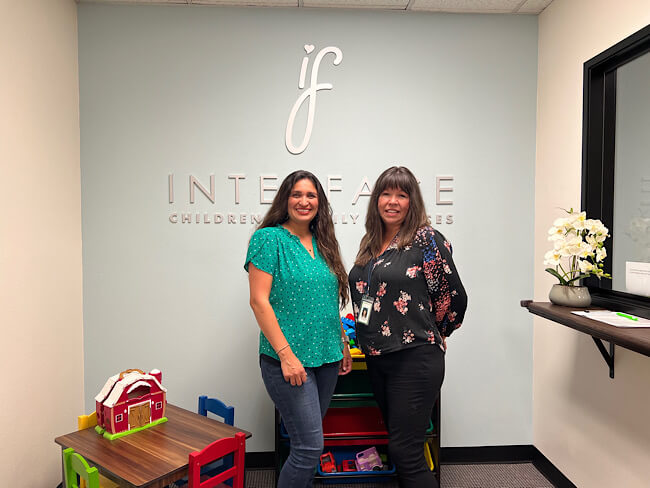
September 27, 2024
Traumatized children find mental health therapy beneficial
A Ventura County community-based nonprofit provides counselors to help …

September 17, 2024
A Latina’s voice in mental health is impactful with her clients
Connecting through a shared heritage gives one therapist a unique perspective …

August 16, 2024
After severe depression, a ‘rainbow lit up my sky’
Shannon Parkin survived 7 suicide attempts. She shares her story of hope …

July 17, 2024
4 parent tips for back-to-school success
The start of the school year can bring up different emotions for children …

July 11, 2024
Transforming education and mental health in Watts
Our investment in the Watts neighborhood of California, in partnership …

July 9, 2024
Antiaging skin care … for kids?
Kids as young as 9 are using antiaging products. A Kaiser Permanente dermatologi …

June 27, 2024
5 facts about autism
A Kaiser Permanente doctor shares key details. By learning more about autism, …

June 25, 2024
Prompt postpartum care saves a baby’s life
When a newborn was diagnosed with meningitis, a life-threatening infection …
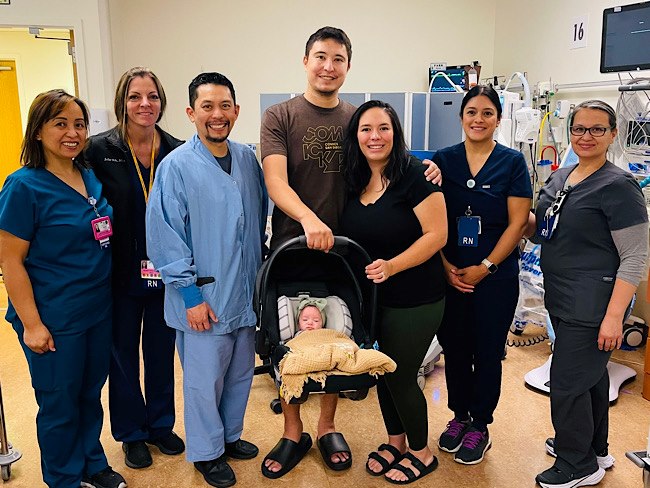
June 17, 2024
That’s a lot of babies!
Delivering multiple babies is difficult, but Kaiser Permanente care teams …

May 31, 2024
Inspiring students to take charge of their health
Kaiser Permanente and the Los Angeles Football Club will launch the second …

May 14, 2024
A key ally in navigating mental health care for kids
Behavioral health consultants can provide a better understanding of often …

May 10, 2024
Self-care is key for new parents
Feeling emotional or overwhelmed after a new baby’s arrival? You’re not …

May 3, 2024
Lonely and depressed — but not alone
After a lifetime of feeling isolated, Moth Wygal finds connection thanks …

April 10, 2024
For a new mom, talking about her worries helped her heal
One in 5 people experience depression, anxiety, or other mental health …

February 21, 2024
From planning his funeral to celebrating his wedding
Gabriel Abarca had no hope for his future. Then the team at Kaiser Permanente …

February 12, 2024
Proposition 1 would bolster mental health care in California
Kaiser Permanente supports the ballot measure to expand and improve mental …

January 29, 2024
Empowering minds to help others thrive
Supporting behavioral and mental health in communities where needs are …

January 22, 2024
Solutions for strengthening the mental health care workforce
Better public policies can help address the challenges. We encourage policymaker …
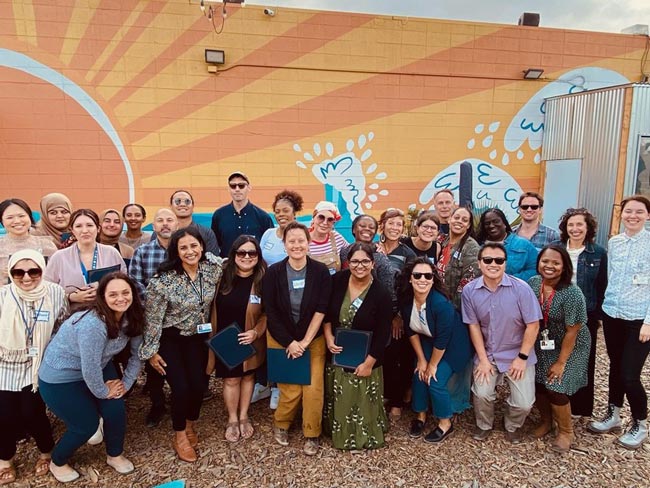
January 3, 2024
Addressing the shortage of mental health workers
There aren’t enough mental health professionals in the U.S. to meet the …

December 7, 2023
Safe, secure housing is a must for health
We offer housing-related legal help to prevent evictions and remove barriers …

November 29, 2023
Tapping into an array of mental health options
Pavan Somusetty, MD, explains how people who need support and guidance …

October 24, 2023
Childhood anxiety: What parents need to know
A child and adolescent psychiatrist shares tips on supporting your child …

October 11, 2023
Bridging the mental health gap
Kaiser Permanente’s partnership with Fontana Unified School District brings …

September 27, 2023
Harvest your power
Use biofeedback to help manage stress.

September 27, 2023
From suicide survivor to mental health advocate
Former Major League Baseball player Drew Robinson shares his story of hope …

September 13, 2023
Mental health champion: A mission inspired by personal loss
San Diego Wave Fútbol Club star defender Naomi Girma, Kaiser Permanente …

September 6, 2023
Recovery from addiction is possible
Our clinicians help patients get the care they need to move forward with …

September 6, 2023
Advancing mental health crisis care through public policy
Organizations that provide public mental health crisis services must work …

August 28, 2023
Grants improve the total health of our communities
Kaiser Permanente increases access to mental health services in Southern …

August 10, 2023
Successfully navigating the school year
These tips from Don Mordecai, MD, Kaiser Permanente’s national mental health …

August 4, 2023
Eating well and adopting healthy habits helps prevent cancer
Learn how lifestyle medicine is part of cancer care at Kaiser Permanente.

July 25, 2023
5 breastfeeding myths debunked
Tarayn Fairlie, MD, a pediatrician and lactation consultant, helps separate …

June 30, 2023
Men's mental well-being is a priority
Unique challenges and societal pressures can impact men’s emotional well-being.

June 28, 2023
Making waves to empower young girls
Kaiser Permanente and the San Diego Wave Fútbol Club host a second Wave …

June 23, 2023
Get the mental health support you need
Kaiser Permanente is here to help with care and valuable tools to support …

June 21, 2023
And that’s why they call postpartum the blues
Take time to adjust to a new baby and lifestyle changes — and reach out …

June 9, 2023
Mental health, addiction, and the power of a peer
Shared experience helps young people in Oregon build confidence for their …

June 7, 2023
Teen social media use may lead to depression
Creating a healthy relationship with social media can help safeguard the …

June 6, 2023
COVID-19 vaccine: No serious side effects in young children
Kaiser Permanente researchers led analysis of large, diverse group of young …

June 5, 2023
Understanding and living with bipolar disorder
A Kaiser Permanente member shares his personal journey of navigating bipolar …

May 22, 2023
Sidelined by injury, a former nurse seeks depression care
Susan Sandhu struggled to find meaning in her life after an injury forced …
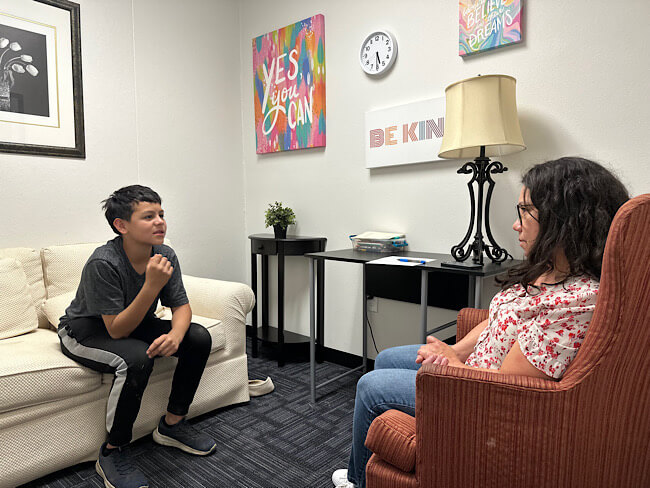
May 18, 2023
Addressing mental health trauma in a local community
Trauma-informed outreach efforts in Orange County are being recognized …

May 16, 2023
Managing trauma does not need to be traumatic
Expanded access to high-quality, affordable mental health care supports …

May 9, 2023
School shootings provoke anxiety in many children
Child psychiatrist defines anxiety, its symptoms, how to address it, and …

March 29, 2023
Volunteering helps create healthier communities
Kaiser Permanente’s partnership with Special Olympics Southern California …

March 24, 2023
Finding hope after a mental health and addiction crisis
Treatment for bipolar disorder and opiate addiction helps a Kaiser Permanente …

March 16, 2023
Supporting our children after acts of mass violence
Southern California psychiatrist offers practical advice for parents to …

March 13, 2023
Making waves with our first female sports ambassador
Kaiser Permanente in Southern California partners with San Diego Wave Fútbol …

March 7, 2023
For moments when you may not need to see a therapist
Kaiser Permanente provides members with convenient ways to improve their …
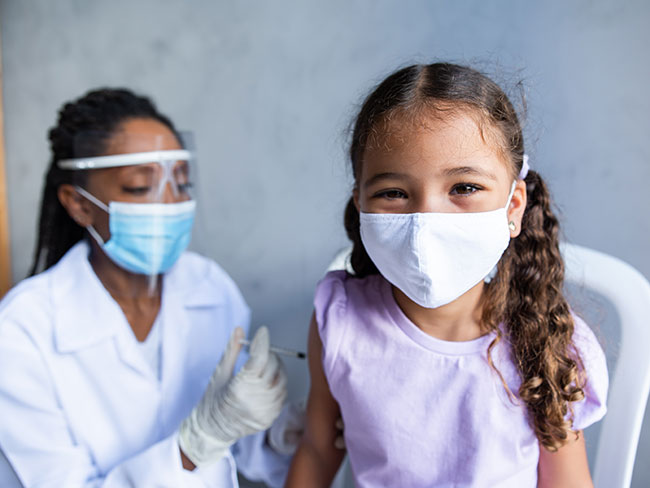
February 27, 2023
Teaching flu a lesson
School-based flu vaccination clinics made it safe and convenient for students …

February 23, 2023
Eating disorders on the rise among teens
Expert shares 5 valuable tips for parents and guardians to help children …

January 19, 2023
Understanding stress and how to manage it
A Kaiser Permanente psychiatrist shares advice for coping when stress won't …
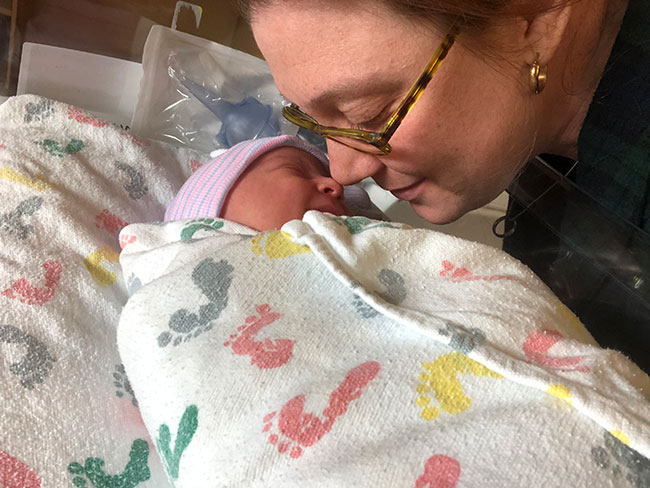
September 27, 2022
Maternity appointments from the comfort of home
New care option offers pregnant patients a mix of in-person and video visits.

September 7, 2022
How you can help prevent suicide
When someone you care about is struggling, it can be hard to know what …

August 29, 2022
For student athletes, mental wellness is a game changer
A sports medicine physician and mental health therapist discuss the mind-body …

August 3, 2022
Supporting new moms in the postpartum period
By reaching out early and providing care that’s personalized to parents’ …

June 27, 2022
Kids 6 months to 17 years can receive COVID-19 vaccination
Providing safe and effective vaccinations to children is an important step …

June 23, 2022
Collaborative care for serious mental health conditions
An innovative telehealth program gives patients direct access to pharmacists …

June 16, 2022
Leadership and innovation to prevent gun injuries and deaths
Kaiser Permanente’s new Center for Gun Violence Research and Education …

May 18, 2022
Initiative improves mental health in gaming community
Newly released results show the Presence of Mind initiative can be an effective …

May 3, 2022
One pill can kill: Understanding the risks of fentanyl
As overdose deaths skyrocket, an addiction medicine specialist explains …

March 4, 2022
Online quiz helps predict likelihood of teen substance use
Assessment helps parents and caregivers intervene early when kids are at …

October 28, 2021
When things fell apart, telehealth was her lifeline
Stuck at home during the pandemic, a Kaiser Permanente member with autoimmune …

October 1, 2021
Our support of California’s student vaccination requirement
A statement from Kaiser Permanente chair and chief executive officer Greg …

October 27, 2020
Sharing an innovative approach to youth mental health
Don Mordecai, MD, Kaiser Permanente’s national leader for mental health …